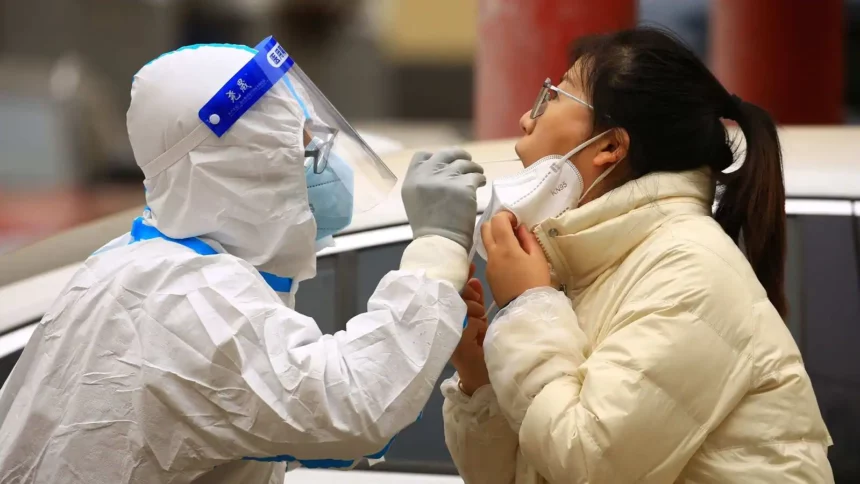In an effort to streamline its supply chain network and accelerate the deconstruction of the nation’s zero-COVID policy, China announced on Saturday that it would cease screening ship captains and truck drivers who transport products nationally for COVID-19.
This week, the nation made a major turn toward economic recovery by easing significant COVID policy provisions. The decision was well-received by the public, but it is now raising worries that infection rates may rise and cause additional problems.
Beijing is also focusing on making sure there are enough supplies of medicines and fortifying the nation’s healthcare system, which experts warn could be soon swamped. Beijing is also requiring less testing and allowing others with mild symptoms to remain at home. The government changed course in response to widespread demonstrations, instilling dread in a nation with a low vaccination rate where people had been conditioned to fear the sickness. People in Beijing were anxious for Beijing to start to match with the rest of the globe, which has mostly opened up in an effort to live alongside COVID, three years after the coronavirus first appeared in central China.
According to authorities, eliminating those restrictions seeks to ensure the uninterrupted supply of commodities like antigen kits and medications. Much of China’s supply chain network was disrupted earlier this year during widespread shutdowns because people transporting commodities were required to present negative COVID test results or health codes at checkpoints.
China’s transport ministry issued a warning saying that “no effort should be spared to ensure smooth delivery of medical supplies.”
In many cities, long waiting lines started to form outside pharmacies by people who have to buy medicines for cough, flu drugs, and face masks, however, the state market regulator has cautioned the price for Covid battling products might go up and, to control the online sale of medications, masks, antigen testing supplies, and food, China’s State Administration for Market Regulation established recommendations. It specifically warned internet enterprises not to “benefit from the pandemic.”
The Chinese foreign ministry announced on Friday that China had agreed to allow Germany to give German nationals living there the COVID vaccine made by BioNTech. Beijing has up until this point insisted that only vaccines made locally be administered.












